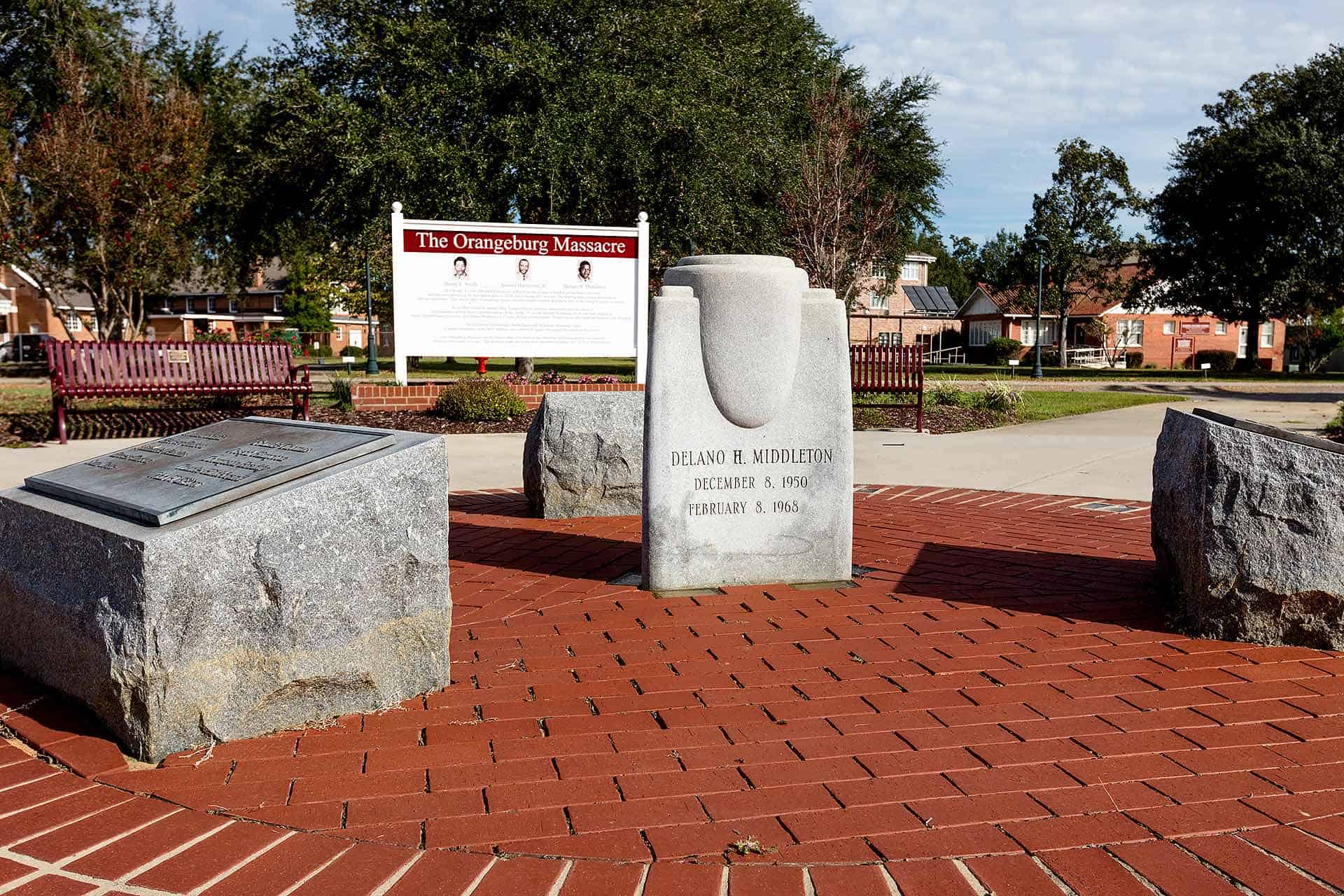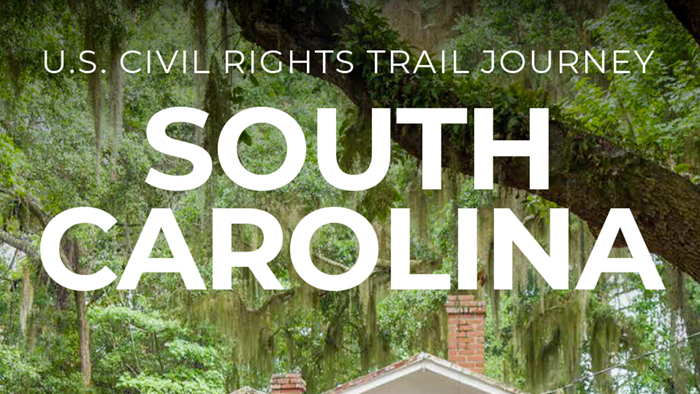Sit-ins, Protests and the Persistence of Students in the Fight for Desegregation
Orangeburg was the center of South Carolina’s desegregation movement from 1950 to 1972. In 1960, students organized a sit-in there at S.H. Kress & Co., a department store with a lunch counter where Black and white patrons were not permitted to dine together. Following this event, students continued to boycott stores in Orangeburg that remained segregated, culminating in a march of 1,000 students that turned violent when the peaceful protestors refused to disband. In 1968, tensions continued to rise in Orangeburg, leading to several incidents at the local All Star Bowling Lane because the owner was not willing to desegregate. This led to the violent clash known as the Orangeburg Massacre on February 8, 1968, wherein the South Carolina Highway Patrol fired guns into a crowd of 200 protestors gathered on South Carolina State University’s campus, killing three students and injuring 27 people. Though the officers were charged with using excessive force, all nine were acquitted, despite the fact that multiple witnesses testified that students were not attacking the officers and that no students were found to have had weapons, as the police had claimed.

























